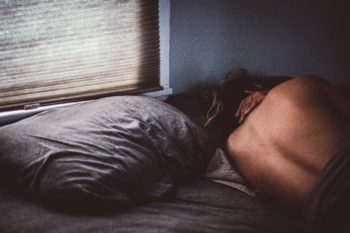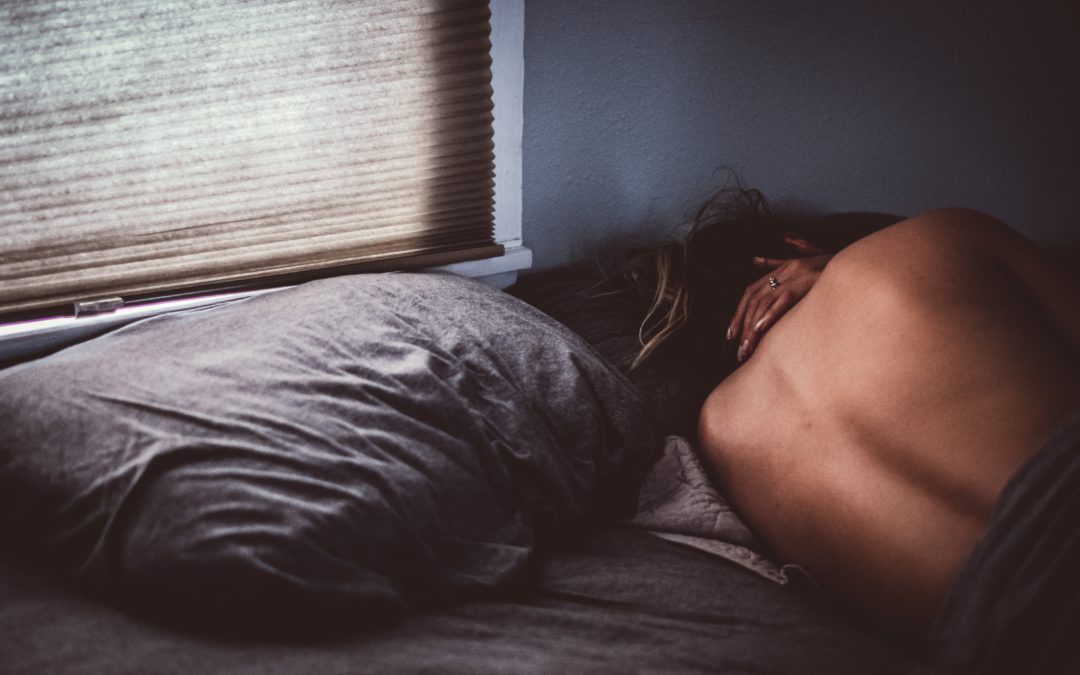It’s a sleep week, my tribe! In my online lifestyle medicine course for doctors, I go into sleep for an entire week…. 🙂 So I’ll try to be more brief here but I’m so nerdy, it is hard to skimp. Let’s just choose one small topic then …. Sleep modifiers.
Sleep is regulated by a small area in the brain called the suprachiasmatic nucleus, in your hypothalamus, which is powerhouse of feedback control for many of the hormones in our body. To drastically simplify the process of sleep physiology, the eyes sense light in the retina, which sends information back to this area of the hypothalamus, which tells the pineal gland to release melatonin (the “go to sleep” hormone). It also sends signals to your gut (the splanchnic system) and the adrenal gland (metabolism and stress). When you are sleeping, the body slows down it’s heart rate, decreases blood pressure, decreases food seeking hormones (leptin), decreases core body temperature, and suppresses cortisol (stress hormone) release. That all sounds important right? Giving your body a “break”, not just your mind. It also has really important effects on your emotional and mental health, the slow wave sleep for the first few hours is restorative and the REM sleep cycles help you fear extinguish, among other things. You can start to guess at the health effects of NOT getting good sleep, right? Cortisol = stress = inflammation = obesity = disease etc….
But it’s not just a one way street, like most of our complex systems in the body, it is a feedback loop. And that is where we are coming from when we are talking about sleep modifiers. If we can modify the feedback to the central system (the suprachiasmatic nucleus) from the retina, the adrenal and the splanchnic system, we can make a big effect on how quality our sleep is, and in turn the health that we can achieve from quality sleep. Let’s review the top two modifiers, food (isn’t it always about food for me, LOL) and light.
Let’s cover food first. So there are two parts to this… the first is that food in the gut activates the metabolic and myogenic auto regulation of the gut, releasing all sort of chemicals and hormones that help us digest food, break down macronutrients and utilize for energy or for storage. This also alerts the adrenal gland, in order to get at the sympathetic and parasympathetic systems to help with all of this auto regulation. That means less melatonin, more epinephrine, norepinephrine, aldosterone, NO and more…. which all help with digestion but also raise blood pressure, heart rate, core temperature, all things that are the opposite of what we need to have balanced for quality sleep. Another interesting point is that restricted feeding creates a biochemical redox state that actually allows proteins in the retina work better to protect the circadian rhythm.
Why am I telling you all of this? Because this is a key to understanding the complexity of how sleep and your gut are related…. Activating your gut with food will activate systems that will keep you awake. Eating carbohydrates actually can signal awakening, this happens because of the splanchnic effect on the adrenal glands. What you eat and how hydrated you are WILL affect your splanchnic ability to respond and absorb and the adrenal gland’s effect on the splanchnic system is clear. We can modify our splanchnic and adrenal responses and melatonin sensitivity by drinking more water and avoiding carbohydrates near bedtime (carbs = cortisol = awake).
Now on to LIGHT. The retinal ganglion cells transmit information to the SCN about light. And this information is modified by the pupillary reflex by limiting the amount of light let in to the retinal cells, modified by the type of light it is exposed to (the melanopsin cells are very sensitive to blue cooler hues), modified by the nonvisual density of the light (sunglasses). So how the retinal cells react are a modifier of sleep. Light causes suppression of melatonin especially with the outside natural light and blue lights. Sunlight does this more than artificial lights. Bright lights increase sensitivity of the retina late at night which can suppress melatonin release and keep it at lower levels for several days. Warm spectrum lights suppress melatonin less than the blue cold hues do. The blue hues also cause the adrenal to release hormones and biochemicals that cause awakening.
Takeaways! There’s a lot we can do to help our bodies sleep. As with everything, the more we understand about how our bodies work, the easier it is to implement change!
- We can modify our retinal ganglion by using redder warmer hued lights, avoiding lights at time for bed, sunglasses, screen covers. Bright natural light in the afternoon but avoid in the evening to stay melatonin sensitive. Exercise in the afternoon, outside if possible.
- We can restrict feeding to facilitate the circadian rhythm protein expression in the retina and to prevent activation of the adrenal and splanchnic systems. Carbs keep you awake, don’t eat within 3 hours of bedtime if you are a late owl and are trying to adjust, and if you are trying to awaken in the morning, eat carbs within 45 min of awakening. Hydration is key but spread it throughout the day and avoid in the 2 hours before bed.
Hasta proximo semana! Theme next week is Mindfulness! Until then, rest up!

Photo by Gregory Pappas on Unsplash




